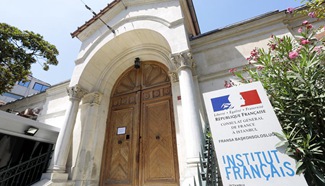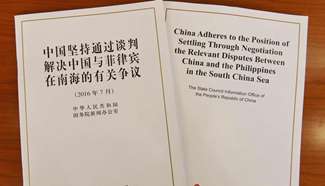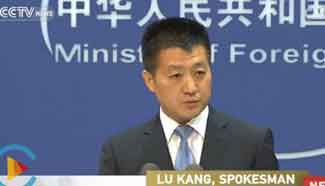WASHINGTON, July 13 (Xinhua) -- Ultrasound waves could treat a potentially deadly complication that affects some twin pregnancies, a new study said Wednesday.
The early-stage feasibility study, published in the U.S. journal Science Translational Medicine, suggested that High Intensity Focused Ultrasound (HIFU), a technique already used for treating some cancers such as prostate cancer, could also help a condition called Twin-Twin Transfusion Syndrome (TTTS).
TTTS occurs in around one in seven identical twin pregnancies, and leads to one baby growing much larger than the other due to abnormal blood vessels in the placenta, therefore resulting in complications such as premature birth, handicap or even death of one or both babies.
Severe cases can be treated by using a laser to destroy the abnormal blood vessels, but this involves making a small hole in the womb and carries a risk of infection or miscarriage, senior author Christoph Lees of Imperial College London explained in a statement.
Furthermore, the laser can sometimes not reach some abnormal vessels deep in the placenta, Lees said.
The new technique, however, can selectively target and destroy placental blood vessels -- potentially enabling it to split the placenta in two without the need for an invasive procedure, by creating a beam of high energy sound waves that generate heat and kill cells.
The researchers tested the technique on 11 anesthetized pregnant sheep -- five had the HIFU procedure while six had a placebo procedure.
Although the sheep did not carry twins, the blood vessels in the sheep placenta have a similar structure to blood vessels in the human placenta and the fetuses of sheep and humans are a similar size.
The results showed the technique was successful, and could destroy blood vessels without damage to the fetus.
"Although this is very early-stage research, it shows the procedure can successfully destroy blood vessels in the placenta -- and could potentially stop abnormal blood flow between twin babies," Lees said.
"We now hope to continue developing this HIFU procedure, translate these findings to humans, and work towards human trials."
In addition, the laser procedure is usually performed at around five months into the pregnancy, once the womb is big enough to accommodate the laser being inserted.
However, the current study suggested the HIFU procedure may work even earlier, at around three to four months into the pregnancy, therefore further reducing chance of complications.










